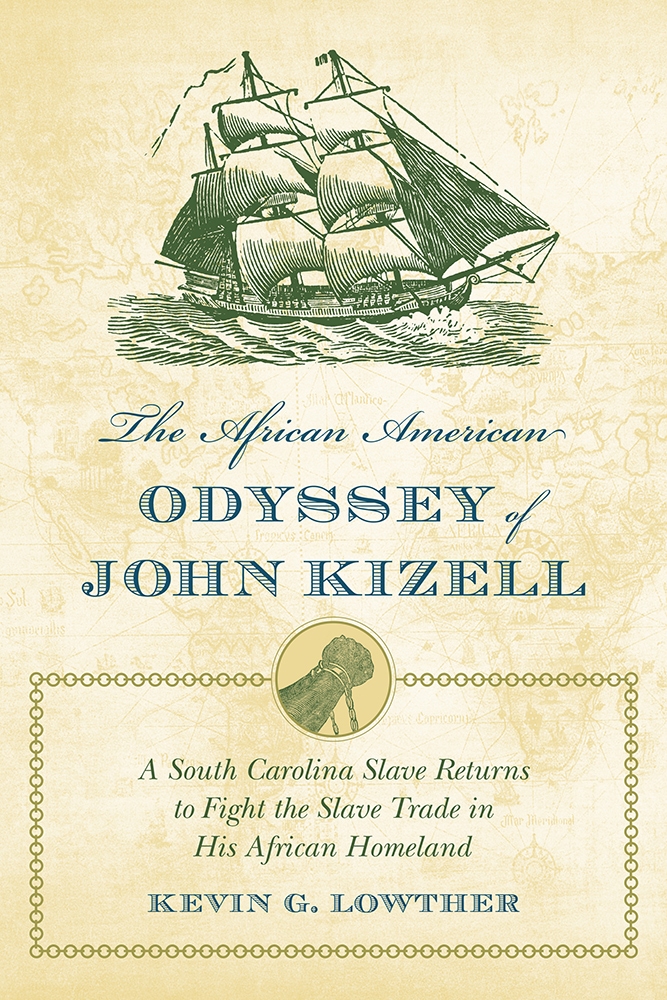Black History Month Sale: 40% off all books, plus FREE SHIPPING on all U.S. orders over $50 | Use code JBHM26

Size: 6 x 9
Pages: 328
Illustrations:
Kevin G. Lowther
The inclusion of this book in the Open Carolina collection is made possible by the generous funding of
"One of Lowther's biggest contributions is his discussion of African complicity in the trans-Atlantic slave trade. Told in the religious and cultural context of African communities, Lowther relates how Kizell took unprecedented action against slavery from within, approaching local leaders to dissuade them from selling and trading fellow human beings. In learning about the life of Kizell, readers will find their understanding of the past broadened, deepened and challenged."—Charleston (S.C.) Post and Courier
"Lowther recounts Kizell's remarkable story from his childhood in Africa, capture, and enslavement, through joining the British following the surrender of Charleston in the American Revolution, to his resettlement in Nova Scotia and eventual return to his native West Africa. . . . The result is a dramatic piece of Atlantic history told from an African perspective, a rarity in the historiography."—Choice
"In a beautifully written and deeply researched book, Kevin Lowther has restored John Kizell to the pantheon of enslaved blacks who, during the War of Independence, sided with the British forces who emancipated them rather than with the American colonists who would not. This is an invaluable chronicle of the life and times of a man who continued to fight against the slave trade even after his return to Africa."—Walter C. Carrington, former U.S. ambassador to Nigeria and Senegal and former Peace Corps director in Sierra Leone
2011 Paul Cowan Non-Fiction Award
Copyright 2026
Website By Morweb.org